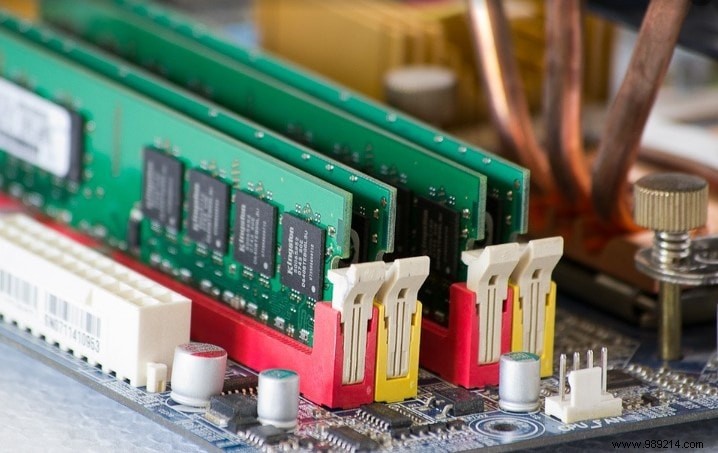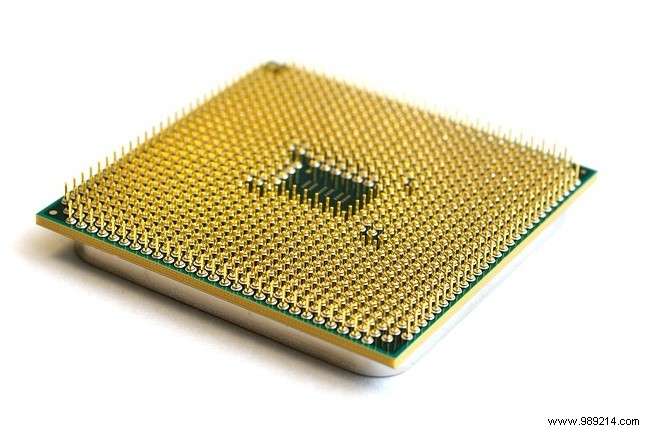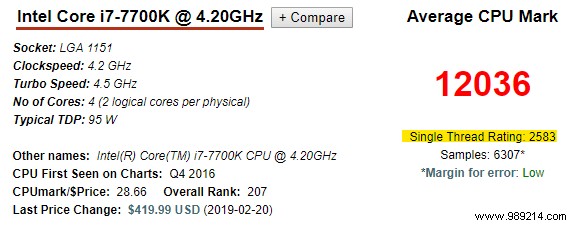In an age of ever-increasing video card prices, it's important to know how best to spend your money. People who work in marketing are certainly doing their job well, impressing with big numbers, cool designs, news articles, etc. You might be tempted to get this "deal" on 32GB of RAM running at 3600MHz just because those numbers sound impressive. But it won't increase your game's FPS as much as you might think. In fact, the improvement is usually so small that it's basically wasted money.
SummaryDon't Buy "Gaming OC" Video CardsRAM Frequency Doesn't Matter in GamingDon't Judge a Processor by Generation and Number of CoresConclusionJust because you're building a high-end gaming PC doesn't mean you have to pay an insane price for every part. Here are some mistakes people make when buying parts for a gaming PC and how you can avoid them.
This may seem counter-intuitive. You are a gamer:you want the best. You don't want the regular RTX 2080 grandma to use. You want this beast:"RTX 2080 Gaming OC eXtreme Edition". But slapping the words "gaming" and "OC" (overclock) next to video card names is simply a marketing trick to make people pay more for almost the same hardware. That doesn't mean it applies to all gaming hardware. For example, a gaming mouse might be worth the extra price.

RAM speed can give you significant improvements in other areas, such as compiling programs, rendering videos, photos, etc., but it matters very little in games. So just choose a respectable brand of RAM and don't mind the frequency. If a lower frequency is cheaper, buy it and invest the money you saved in a better video card. You will see much greater improvements.
And, just like "gaming" video cards, just because they look cool and claim to be optimized for gaming, that doesn't mean they're worth spending more money on.
There is a huge difference in performance between a first generation Intel processor and a second generation processor. But when you go from the second generation to the third, you won't see any significant gains. Sometimes a new generation brings improvements to the integrated GPU:lower power requirements and new features introduced.
But in terms of data processing speed, the improvements can be very small. It depends on what the engineers tried to improve on this specific new generation.
The basic rule is the same as above:don't pay 50% more silver for 10% upgrades.

When it comes to cores, you might get 60 FPS with a 12-core CPU and 80 FPS with a 4-core CPU. When it comes to gaming, single-thread performance matters far more than the number of cores. That's because it's real-time rendering. From the moment you click your mouse button to the moment an action occurs on the screen, the CPU has to rush and prepare the data for the GPU. Having twenty-four hearts won't help him do it any faster. However, multiple cores can help in games where many things need to be processed at the same time. For example, hundreds of enemy units, equipped with complex artificial intelligence, in a strategy game.
Think of single-threaded performance as how fast the processor can respond. The faster it responds, the faster the video card can know what frame to render. And think of cores as the number of things the processor can do at once.
Check out the benchmark results to decide on your CPU. For example, if you google "i7-7700K passmark", you will find this part number. Then google “ryzen 7 1800x passmark” if you think the processor could be better and cheaper. While the total score is higher, the single thread score is much lower.

We hope you can save a few bucks by avoiding unnecessary upgrades and reinvesting them where it matters most:a better video card. May it never let you drop below 60fps again! Well, at least for a few years.